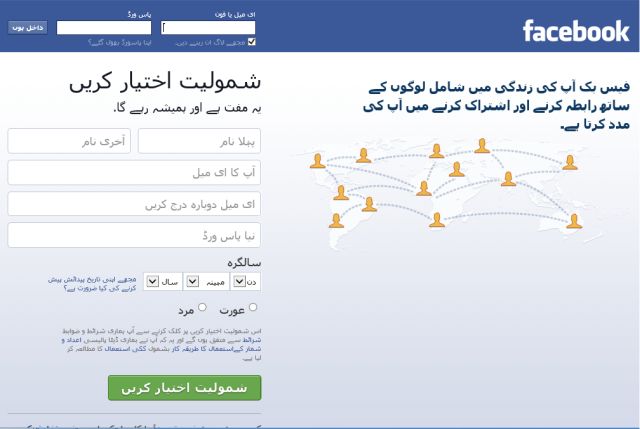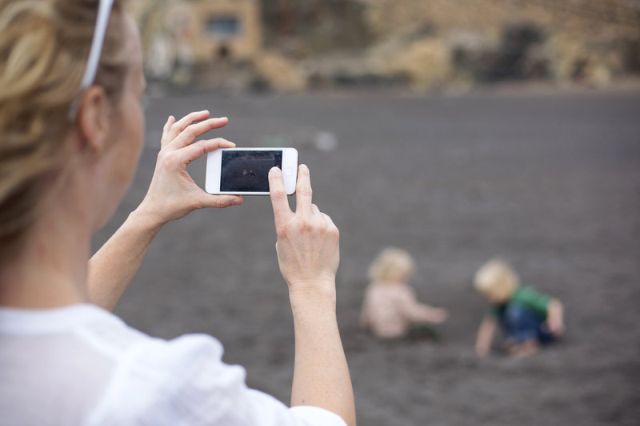
by admin | May 25, 2021 | Branding, Entrepreneurship, Markets, Social Media, Startup Basics, Technology
 Hyderabad : Nine shortlisted augmented reality (AR) and virtual reality (VR) start-ups under the India Innovation Hub Accelerator Programme of T-Hub and Facebook on Wednesday showcased their technologies.
Hyderabad : Nine shortlisted augmented reality (AR) and virtual reality (VR) start-ups under the India Innovation Hub Accelerator Programme of T-Hub and Facebook on Wednesday showcased their technologies.
The three-month accelerator programme concluded with the Demo Day. The programme provided them an opportunity to work and scale up under the aegis of Facebook, with direct access to FbStart, a global program from Facebook for start-ups.
These start-ups received hands-on training, mentoring sessions and practical lessons on product, technology and strategy from Facebook experts, skilled in the field of AR/VR. In addition, each start-up will become a part of an alumni network of graduates from programme across the globe, enabling them to learn, collaborate and build together, said a statement by T-Hub and Facebook.
The programme also provided them with access to T-Hub’s network of mentors, industry experts, investors, service providers and the community.
T-Hub and Facebook selected a cohort of nine start-ups from 20 shortlisted applications for the three-month programme, after a rigorous evaluation process. These start-ups offered solutions with the potential to solve real-world problems in industries such as health tech, industrial manufacturing, human resources, education and corporate learning, among others.
“Today, technology has the potential to unlock newer opportunities, empowering people and businesses to dream big and build products to empower their communities. The success of our accelerator programme reinforces our focus to enable the next generation of start-up success in India,” said Satyajeet Singh, Head of Platform Partnerships, Facebook India and South Asia.
“For this programme, T-Hub specifically focused on AR, VR and MR, but in general, start-ups offer a tremendous value proposition for corporate giants with solutions based on many emerging technologies like AI, IoT, Blockchain, etc. T-Hub is elated to continue being one of the best scaling catalysts in India for both corporates and start-ups,” said Srinivas Kollipara, COO and interim CEO, T-Hub.
—IANS

by admin | May 25, 2021 | Business, Markets, SMEs, Social Media, Technology
 Bengaluru : India is one of the fastest growing regions for Augmented Reality (AR) technology and Facebook is providing tools like our AR Studio for developers and creators in the country to help them create unique experiences, a top company executive said here on Tuesday.
Bengaluru : India is one of the fastest growing regions for Augmented Reality (AR) technology and Facebook is providing tools like our AR Studio for developers and creators in the country to help them create unique experiences, a top company executive said here on Tuesday.
Facebook’s AR Studio is new software suite — purpose-built for creators and developers that allow them to easily make stunning visual effects for the Facebook camera.
“India is one of the fastest growing regions for AR technology. Through our cutting-edge creative offerings, we are giving creators and developers power to build for tomorrow with emerging technologies like AR without using any expensive hardware or specialised apps,” Satyajeet Singh, Head of Platform Partnerships, Facebook India and South Asia, said in a statement.
Facebook is focused on opening up the AR platform to more people, offering more utility by bringing AR to everyone and their daily habits.
“With 1.5 billion people who have access to Facebook camera today, we want to focus on providing unique experiences, and through the AR studio we are enabling creators to build new ways for them to access AR experiences,” the company said as it organised an “AR Day” event here.
AR Studio is currently available on macOs and will soon be available on Windows.
“Myntra has been a pioneer in AR applications. We are looking to partner with Facebook now to bring AR effects into our brand pages, feed and stories on Facebook and to leverage the massive reach of Facebook to bring these experiences and tools to our customers across the various Facebook platforms,” said Jeyandran Venugopal, CTO, Myntra.
According to Adhvith Dhuddu, Founder and CEO, AliveNow, they are excited to work on AR studio because it’s opened up unique possibilities to build interesting AR experiences for brands and 1.5 billion users on Facebook.
“With face gestures, hand tracking, object recognition and more, we are building for the future with AR camera filters,” he added.
—IANS

by admin | May 25, 2021 | Markets, Networking, Online Marketing, Social Media, Technology, Urdu
 San Francisco : Artificial Intelligence (AI) researchers at Facebook have set a new record in improving translation from Urdu to English.
San Francisco : Artificial Intelligence (AI) researchers at Facebook have set a new record in improving translation from Urdu to English.
Neural Machine Translation (NMT) is the field concerned with using AI to do translations in any language.
The team from Facebook AI Research (FAIR) has seen a dramatic improvement in its results, the Forbes reported on Saturday.
“To give some idea of the level of advancement, an improvement of 1 BLEU point (a common metric for judging the accuracy of MT) is considered a remarkable achievement in this field; our methods showed an improvement of more than 10 BLEU points,” the team said in a paper that described translation from Urdu to English.
Facebook AI researchers seek to understand and develop systems with human-level intelligence by advancing the longer-term academic problems surrounding AI.
The research covers the full spectrum of topics related to AI, and to deriving knowledge from data: theory, algorithms, applications, software infrastructure and hardware infrastructure.
“Long-term objectives of understanding intelligence and building intelligent machines are bold and ambitious, and we know that making significant progress towards AI can’t be done in isolation,” said researchers from FAIR.
FAIR researchers have tested a new approach that teaches bots how to chit-chat like humans.
Facebook is making deep investments in AI technology and in May announced the next version of its open-source AI framework for developers.
Microsoft is currently leading when it comes to AI and Deep Neural Networks to improve real-time language translation.
Earlier this year, Microsoft brought machine learning to improve language translation for Hindi, Bengali and Tamil.
With Deep Neural Networks-powered language translation, the results are more accurate and the sound more natural.
—IANS

by admin | May 25, 2021 | Markets, News, Social Media, Technology
 New Delhi : Although Indian parents are aware that images of their children posted online could end up in the wrong hands, most of them are still sharing their kids’ images online often without any consent from them, a survey by global cyber security firm McAfee revealed on Tuesday.
New Delhi : Although Indian parents are aware that images of their children posted online could end up in the wrong hands, most of them are still sharing their kids’ images online often without any consent from them, a survey by global cyber security firm McAfee revealed on Tuesday.
The survey, titled “The Age of Consent,” found 40.5 per cent of parents in India (with Mumbai being the most active) post a photo or video of their child at least once a day on their social media accounts, with 36 per cent posting a picture of their child once a week.
Most parents identified the following concerns associated with sharing images online including paedophilia (16.5 per cent), stalking (32 per cent), kidnapping (43 per cent) and cyberbullying (23 per cent), but many (62 per cent) don’t even consider if their child would consent to their image being posted online.
“What’s even more alarming is that a whopping 76 per cent of parents say they are aware that the images of their children posted online could end up in the wrong hands,” the survey noted.
Mumbai (66.5 per cent) was followed by Delhi (61 per cent) and Bengaluru (55 per cent) where majority of parents believed they have the right to share images of their child online without consulting them first.
“The survey reveals parents are not giving enough consideration to what they post online and how it could harm their children. Posting kids’ information may compromise their personal information,” said Venkat Krishnapur, Vice-President of Engineering and Managing Director – McAfee.
Responsibility lies with parents to understand the implications of their social media habits/actions and the repercussions the child may face, he added.
The survey found parents from Mumbai to be most active with 48 per cent posting a picture of their child on social media at least once per day in comparison to other metros like Delhi (38.5 per cent) and Bengaluru (31 per cent).
More than half of the parents surveyed (67 per cent) admit that they have or would share a photo of their child in their school uniform despite the risk of giving away personal information thus paving the way for stalkers to get added details on their child’s whereabouts.
While 55 per cent of parents only share images of their child on private social media accounts, 42 per cent are still sharing images on public social media accounts.
“Parents from Bengaluru (59 per cent) exercise highest caution and post pictures of their children only from private social media accounts, closely followed by Mumbai (57 per cent) and Delhi (48.5 per cent),” the findings showed.
While it’s clear that parents are worried about physical risks to their children’s safety, results indicate less concern about the emotional risks.
Interestingly, it appears mothers consider the embarrassing side effect more than fathers, with 47 per cent mothers admitting that they would never post images their children would be embarrassed by, in comparison to 38 per cent of dads.
To reach this conclusion, McAfee commissioned market research firm OnePoll to conduct a survey of 1,000 parents of children aged 1 month to 16 years old across Mumbai, Delhi and Bengaluru.
“Many social networks will tag a user’s location when a photo is uploaded. Parents should ensure this feature is turned off to avoid disclosing their location. This is especially important when posting photos away from home,” said McAfee.
Parents should only share photos and other social media posts with their intended audience, it added.
—IANS

by admin | May 25, 2021 | Markets, Social Media, Technology
 San Francisco : Facebook has forged a partnership with the New York University (NYU) on a research project that aims to make magnetic resonance imaging (MRI) scans up to 10 times faster by leveraging the power of Artificial Intelligence (AI)
San Francisco : Facebook has forged a partnership with the New York University (NYU) on a research project that aims to make magnetic resonance imaging (MRI) scans up to 10 times faster by leveraging the power of Artificial Intelligence (AI)
If the project, called fastMRI, yields the desired results, it will make MRI technology available to more people, expanding access to this key diagnostic tool, Facebook said in a blog post on Monday.
MRI scanners provide doctors and patients with images that typically show a greater level of detail related to soft tissues — such as organs and blood vessels — than is captured by other forms of medical imaging.
But they are relatively slow, taking anywhere from 15 minutes to over an hour, compared with less than a second or up to a minute, respectively, for X-ray and CT scans.
These long scan times can make MRI machines challenging for young children, as well as for people who are claustrophobic or for whom lying down is painful.
Additionally, there are MRI shortages in many rural areas and in other countries with limited access, resulting in long scheduling backlogs.
Making MRI scanners faster has several benefits, including increased access to these devices for patients.
Sufficiently accelerated MRI devices could also reduce the amount of time patients must hold their breath during imaging of the heart, liver, or other organs in the abdomen and torso.
Increased speed could let MRI machines fill the role of X-ray and CT machines for some applications, allowing patients to avoid the ionising radiation associated with those scans.
This NYU-Facebook project will initially focus on changing how MRI machines operate.
Currently, scanners work by gathering raw numerical data in a series of sequential views and turning the data into cross-sectional images of internal body structures that doctors then use to evaluate a patient’s health.
The larger the data set to be gathered, the longer the scan will take.
Using AI, it may be possible to capture less data and therefore scan faster, while preserving or even enhancing the rich information content of magnetic resonance images.
The key is to train artificial neural networks to recognise the underlying structure of the images in order to fill in views omitted from the accelerated scan, Facebook said.
The Facebook Artificial Intelligence Research (FAIR) group, believes that though this project will initially focus on MRI technology, its long-term impact could extend to many other medical imaging applications.
For example, the improvements afforded by AI have the potential to revolutionise CT scans as well.
Advanced image reconstruction might enable ultra-low-dose CT scans suitable for vulnerable populations, such as pediatric patients, Facebook said.
—IANS

 Hyderabad : Nine shortlisted augmented reality (AR) and virtual reality (VR) start-ups under the India Innovation Hub Accelerator Programme of T-Hub and Facebook on Wednesday showcased their technologies.
Hyderabad : Nine shortlisted augmented reality (AR) and virtual reality (VR) start-ups under the India Innovation Hub Accelerator Programme of T-Hub and Facebook on Wednesday showcased their technologies.



